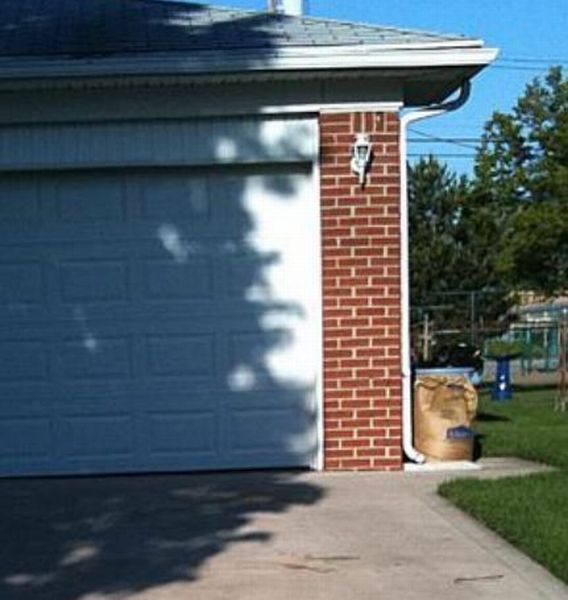This Shadow on a Garage Door Proves Your Brain is Flawed
By:
It may just look like a shadow on a garage door, but a viral photo on Reddit perfectly illustrates how the human thought process is flawed, and why it's so difficult to sway people from their arguments, even when they're wrong.
Entitled "This shadow on a garage door looks like Rambo," the thread has been upvoted 45 thousand times, and immediately filled up with people debating whether the shadow looked like Sylvester Stallone's iconic Special Forces officer.
Other Redditors believed it looked like rock icon Jim Morrison, punk legend Henry Rollins, and most of all, a bear playing a flute.
 Reddit/PIENINYSA1 - reddit.com
Reddit/PIENINYSA1 - reddit.com
Some people wrote about how they didn't see either Rambo's face until reading the thread, but now it was obvious.
"Seriously, I didn't see it until I read that first comment either. Then I saw Rambo immediately," wrote one, while another commented "I can't unsee Rambo long enough to see the damn bear." Some insisted they saw Rambo right away, while others said they only saw the flute-playing bear.
In reality, the image isn't Rambo's face or an flute playing bear.
It's a tree's shadow on a garage door, with our brains deciding what it looks like based on the information we already have. But the people who saw Rambo only because someone else said they saw Rambo had fallen victim to the logical fallacy known as "confirmation bias." Once Rambo was seen, people couldn't not see Rambo. Their thinking had shifted, for good.
Defined by science writer and physician David Gorski as "the tendency for individuals to favor information or data that support their beliefs," confirmation bias prevents us from shifting our opinions, leaves us closed off to new information, and stops us from making our own conclusions, because someone has already planted one in our minds. "It's also a tendency for people to only seek out information that supports their ... pre-existing conclusions, and subsequently ignores evidence that might refute that pre-existing conclusion," Gorski continues.
Sometimes confirmation bias can be as harmless as a Reddit thread, the urban legend that backwards messages were left in Led Zeppelin songs, or the supposed "Face on Mars," where flaws in uploaded data became an eyes and nose on a Martian vista.
But confirmation bias, with its inherent quality of leaving us "unable to unsee" things, has also infected our debates in everything from politics to science. It's what makes pseudoscience and fake news so hard to debunk, and why people stick with outdated and biased information long after others facts should have proved them wrong.
Wired Magazine's Emily Dreyfuss pointed to cognitive bias to explain how President Donald Trump came to have such sway over his supporters, as most seem immune to debunking any of his claims. Even before the election, the Washington Post wrote that not only were attempts to deflate Trump's more ludicrous campaign trail statements, like Muslims cheering after the Twin Towers fell, not working, but were actually making his fans dig in more.
Essentially, the more Trump says something, the more people who already think he's honest believe him. As an example, his constant drumbeat of tweets that the media is biased against him and pushing fake news is believed by 78 percent of Trump voters, according to an April ABC News poll. Despite no evidence that the negative stories about Trump are fake, his supporters believe they're fake, because confirmation bias tells them they are.
But confirmation isn't limited to Trump supporters or conservatives. It effects people from all political leanings, and in all disciplines.
It makes climate change deniers cherry-pick data that supports the conclusions they want to believe, and has kept Andrew Wakefield's long-debunked claims that vaccines cause autism in the public eye, as parents cling to erroneous and retracted research to justify not giving their kids vaccines.
Even Trump's liberal critics have fallen victim to confirmation bias, yearning to believe that the president has already been indicted, in secret, and will be impeached any time now.
Once a person believes something, it's incredibly hard to get them to not believe it, no matter how demonstrability incorrect that piece of information is. However, knowing that confirmation bias is totally normal and that we're all equally prone to it, are the first steps to overcoming it.
